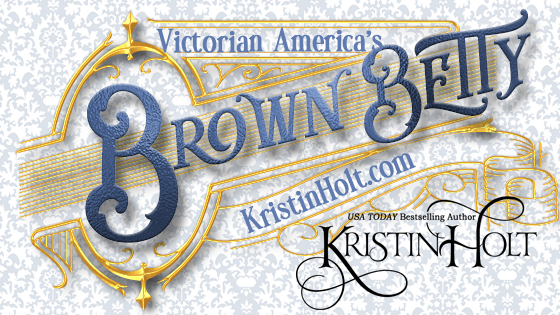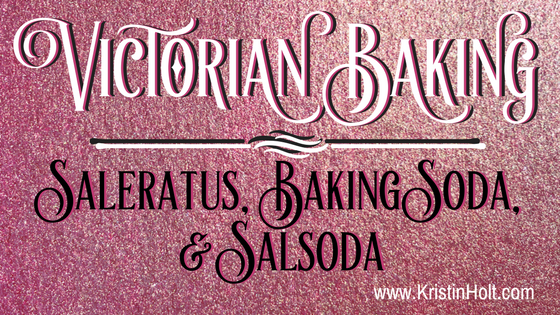
Proposal Wrought by Sensible Girl (1870)
Tale of marital success from The Osage County Chronicle, Burlingame, Kansas, January 1870.
In one simple statement, she convinced her longtime beau to propose marriage. Sensible girl, indeed!

Tale of marital success from The Osage County Chronicle, Burlingame, Kansas, January 1870.
In one simple statement, she convinced her longtime beau to propose marriage. Sensible girl, indeed!

Victorian America’s BROWN BETTY: a teapot, and an economical dessert.
A smattering of recipes from mid- to late-nineteenth century cook books and newspapers paint an image of “brown Betty.” Victorian-era economy shines in these vintage instructions.

Today, December 30th, is National Bicarbonate of Soda Day.
Why recognize and celebrate such an obscure “foodie” day?
Victorian-era recipes containing saleratus, pearl ash, baking soda, baking powder (and more) can be confusing… and evoke a million questions. When were each used? Which were Victorian-era developments? Which did 19th century cooks prefer?

In Part 2 of this blog series, I share 70 newspaper clippings from Victorian America, wherein reports abound that husbands have sold their wives. Prices range from $0.05 (5 cents) to thousands of dollars (US, Victorian). I provided price comparisons, just for impact. Throughout, I provided my opinions regarding TRUTH or JOKE. Ultimately, there had to be some of both. What a bizarre practice!

Our Victorian American ancestors were inventive people. They needed a solution for perishable food in the worst of summer’s heat (and beyond). They came up with a remarkably well-insulated icebox (officially called a refrigerator far earlier than you might guess), designed to be a beautiful piece of furniture and functional. Some iceboxes went so far as to serve the melted ice water by silver tap. This article contains Victorian instructions for care and cleaning of 19th century refrigerators, advertisements, a crime committed with an industrial-sized (believe it or not: a walk-in) refrigerator, current images of antique iceboxes (both family size and commercial size), the icebox’s impact on beer, and so much more.